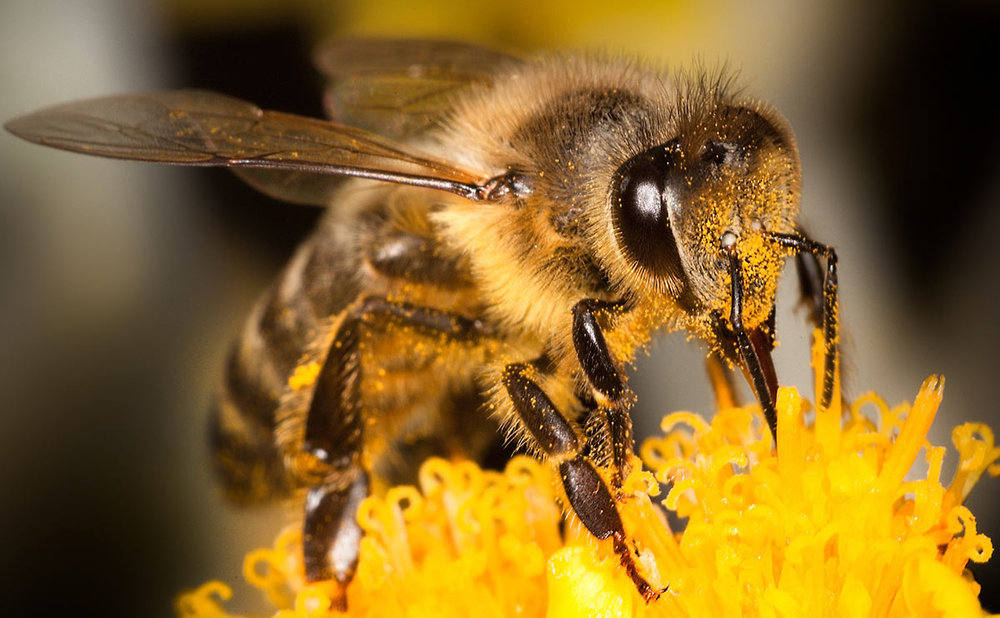Insect pollinators in peril

The plight of natural insect pollinators like bees (both native or indigenous bees and honey bees), moths and butterflies, certain species of pollination friendly beetles and flies need to be taken seriously around the globe.
Negative anthropogenic impacts and human foot prints on natural ecosystems and environment have been causing serious concern around the globe regarding the successful conservation of natural insect pollinators. Pollination is an important biological function in which the pollen grains are transferred between anther (male part) to stigma (female part) of the flower for the purpose of sexual reproduction and genetic exchanges in higher plants.
Air, water and biological agents like pollinator insects are responsible for successful cross pollination in a wide variety of higher plants. It is important to note that large number of crops such as food plants, forages, industrial or commercial crops, vegetables, ornamentals, forest trees are all dependent on natural or biological pollinators like pollinator insects, snails and slugs, birds (humming birds) and small mammals (bats) for successful cross pollination.
Therefore any impact on natural or biological pollinators like insects have serious and negative impacts on both agriculture as well as the delicate natural balance of our extremely fragile ecosystems and highly vulnerable natural environment. Among all the insect pollinators, the bees are worst hit due to a number of factors like environmental pollution, excessive application of agro-chemicals, parasitic diseases of the bees impacting the colony collapse of vulnerable bee populations in both natural and/or artificial bee hives, lack of foraging plants and/or crops for the bees to collect significant nectar and pollens for sustaining bee nutrition.
Some researchers are also indicating that climate change and global warming may also be related to decline in the populations of bees and other insect pollinators. Therefore, bees and other insect pollinators are facing an acute crisis for survival due to multiple factors impacting their life cycles and populations around the globe.
It is therefore important to protect and/or conserve these vulnerable natural insect pollinators like bees from extinction as it can severely impact agriculture and forestry together with apiculture in the not so distant future. Thus a critical ecological crisis can easily turn out into a serious problem for the life and livelihood of millions of individuals engaged around the world in agriculture and apiculture industry.
Hence, it is now important to find sustainable solutions for protecting vulnerable bees and other insect pollinators around the globe. Few sustainable solutions could be reducing or restricting the indiscriminate use of agro-chemicals, promoting organic agriculture, reducing pollution levels, comprehensive controls of different bee diseases and establishing bee (pollinator) gardens or bee habitats or bee sanctuaries across different agro-climatic regions.
Developing suitable bee cum pollinator friendly plant mixes (pollinator mixes) consisting of native wildflowers, grasses and/or annual, biennial, perennial pollinator friendly forage legumes and grasses can cumulatively help over time in building natural ecosystems that can help conserving natural insect pollinators including honey bees and extremely vulnerable native bees successfully. Grasses included in the pollinator mix could also help in phytoremediation, legumes will help in successful nitrogen fixation and improve the soil profile and at the same time cater to the foraging needs of natural insect pollinators as a long term sustainable solution in preventing the population crashes reported in many bee species around the globe.
Such pollinator mixes could be used in both agromically suitable and unsuitable areas, wastelands, forest fringes, planted adjacent to waterbodies, farm perimeters, highways and boulevards, parks, gardens and lawns to help conserving our precious insect pollinators like the bees. Over the time such bee (pollinator) garden can develop into natural or artificial ecosystems catering to a number of other species like insects, reptiles, amphibians, birds and mammals.
Leave a Comment